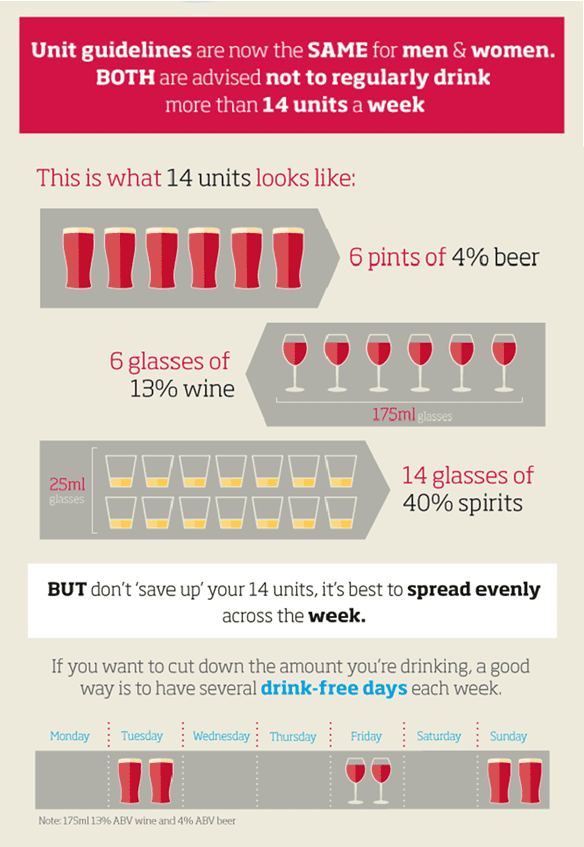Cutting Back on Alcohol has Seriously Helped my Tennis (and my Abs)
By P.J. Simmons
Let me start with a confession: I love drinking.
I can’t imagine life without access to great Bordeauxs or Barolos, especially when perfectly paired with food. Without the fun of discovering new flavor combinations in adventurous, handcrafted cocktails. Without the tingly, alcohol-induced sensations that just feel so good and that I associate with great friends and great times.
But about a year ago, I started seriously questioning my habits around alcohol.
For most of my life, I’ve been a pretty moderate drinker. Having grown up around alcoholics, I’ve always been acutely aware of the dangers of excess.
But over the past few years, the stresses of juggling professional and personal priorities—combined with an emotionally draining news cycle—led me to pour myself a little too much, a little too often to “wind down” and take the edge off.
Before I knew it, the occasional weeknight drink turned into 2-3 drinks a night. Just about every night.
You may be asking yourself, how could a serious athlete allow himself to get to that point?
For one, like so many bad habits, it happened so gradually I didn’t really notice. But ironically, it was also because I was sticking to very demanding tennis and workout routines that were masking many of the negative effects (or so I thought at the time). Even if I felt a little off from drinking the night before, sheer willpower enabled me to keep pushing hard through training sessions. By the end of the workout, I felt reset and restored. So, my subconscious concluded, what’s the harm of drinking again that night?
But towards the end of 2018, the alarm bells finally started going off in my head. I started researching “how much is too much” and realized I was definitely in a danger zone. A great Netflix documentary, “The Truth About Alcohol,” was literally sobering. So were the startling findings of a major new study published in The Lancet warning about the long-term impacts of too much alcohol– and noting safe upper limits were probably way lower than most people think.
I never wanted to reach a point where I had to give up alcohol altogether, so I resolved to take steps to regain control and make sure my bad habits never crossed into addiction.
So last January (2019), I resolved to stop drinking entirely on “school nights” (Sunday-Thursday) and drink only moderately on Friday and Saturday nights. To change my habits and make the change sustainable, I knew I’d need to abide by strict ground rules to start– hoping someday I’d reach the point where I could make exceptions on special occasions.
I’ll be honest, the first week was really tough.
But to my great surprise, it got very easy quickly after that – especially when I started feeling and seeing dramatic results:
— My on-court training sessions have improved significantly. Shocker, I know. In retrospect, I can’t believe how much I let drinking so often sabotage my training—but hindsight is 20/20, and I just didn’t realize what a different it was making at the time. I could push myself even harder and longer. Now I felt stronger and energized, which translates into more confidence and ease, which translates into better playing better decisions and shot making.
— I feel like a beast during my off-court workouts. Workouts remain challenging by design, but they’re no longer a grind to suffer through. I feel healthy during them, not just afterwards.
 — My body has become more efficient at burning fat – and I’m back to eating much more consciously. I literally lost 1-1/2″ around my waist in 21 days after my “new rule” took effect—without losing any lean muscle mass or having my bodyweight drop. Little known fact: Alcohol is not only extra calories, but also an inhibitor to fat burning. As Vice recently reported: “Alcohol reduces the amount of fat your body burns for energy. Just two drinks of vodka and diet lemonade has been shown to cut whole body lipid oxidation—a measure of how much fat your body is burning—by more than 70 percent.” In addition, alcohol calories don’t make you feel full – so drinking can make us want to eat more (while also impairing judgment and lowering our resolve to curb cravings for things like late-night binging on crap like potato chips).
— My body has become more efficient at burning fat – and I’m back to eating much more consciously. I literally lost 1-1/2″ around my waist in 21 days after my “new rule” took effect—without losing any lean muscle mass or having my bodyweight drop. Little known fact: Alcohol is not only extra calories, but also an inhibitor to fat burning. As Vice recently reported: “Alcohol reduces the amount of fat your body burns for energy. Just two drinks of vodka and diet lemonade has been shown to cut whole body lipid oxidation—a measure of how much fat your body is burning—by more than 70 percent.” In addition, alcohol calories don’t make you feel full – so drinking can make us want to eat more (while also impairing judgment and lowering our resolve to curb cravings for things like late-night binging on crap like potato chips).
— My energy levels during the day are way, way better. I wake up ready to seize the day, as opposed to feeling sluggish. I’m more productive at work.
— My face and skin look better (in part because I’m more hydrated!). I also don’t look tired.
— My overall mood during the day is way better, and my stress levels are down (which also means cortisol production is down, which can correlate with belly fat especially in men). I find I’m able to cope better with the stress of the daily news cycle than before.
Sticking to my new rules has led to a virtuous cycle. Because my body and brain actually feel the benefits so regularly of less drinking, I actually want to drink less. By the time Friday and Saturday arrive, I’m reminded of how good I feel without drinking and how much progress I’m making on court and at the gym – so I’m more wary of choices that will undermine all my hard-won results. I also now feel really present and in control when drinking: I really savor each sip, rather than being on auto-pilot. That feeling of being in control contributes to a self-reinforcing positive loop, making it easier and easier to stay on track.
Do I occasionally slip up? Absolutely. But not as often as I would have thought. After a year of generally sticking to this approach, the new habits have become well ingrained.
Some of you may have decided to or felt the need to quit drinking entirely (good on you!). But for those of you who, like me, might want to find a middle ground, I highly recommend the following:
“Rethinking Drinking” – Camille Pagan, Real Simple (written for women, but totally applicable to guys too)
“Take a Break from Drinking” podcast – Rachel Hart
Drinkaware website – Targets UK audience but better than anything I’ve encountered in the US
HOW MUCH IS TOO MUCH ALCOHOL?
Safe alcohol guidelines differ around the world, as do conclusions of different studies. The short answer is: we still don't know exactly. But a major 2018 study published in The Lancet-- which analyzed 83 studies on alcohol consumption over 50 years in 19 high-income countries-- concluded that the UK's official guidelines set in 2016 are about right, whereas those in the United States and many other countries are insufficient to guard against serious health risks.
The Lancet study advised limiting weekly alcohol intake to 12.5 "units" for both women and men, while the current UK guidelines are "14 units" per week. For reference, one unit of alcohol (10ml) isn't much: it's about 1/2 a standard shot in the U.S. of gin or vodka (25 ml), half a pint of average-strength beer, or about 1/2 cup of average-strength wine.
Going above the limits raises all kinds of health risks, including weakening the immune system, higher risk of cancer, liver damage (often not symptomatic until it's too late), and early death from cardiovascular disease, including stroke and heart failure.
In practice, sticking to 12.5 - 14 units of alcohol per week means approximately: 5-6 small glasses of wine OR 5-6 pints of beer OR 6-7 cocktails with standard pours of 1.5 ounces (about 4.5 tablespoons).
Both the Lancet and UK guidelines advocate spreading your budget evenly across the week (e.g., 2 drinks a day on 3 days a week with four drink-free days) versus going nuts on a couple of days. And they also recommend drinking more slowly and alternating with food and water.




I had the same experience this past year. I kept questioning – am I drinking too much. I stopped drinking on a daily basis which was difficult because it’s such a social activity. And it had become such a habit. But reducing alcohol intake does help with the waistline!!! And not feeling sluggish the entire next day.
Thanks for sharing P.J. You rock!!!
Jessy, thanks so much for sharing that and for the very kind words, you rock!! P.J.
Thanks for the post. I recently had much the same experience.
Hey Pete, thanks for letting me know – let’s both stay on the right path! P.J.